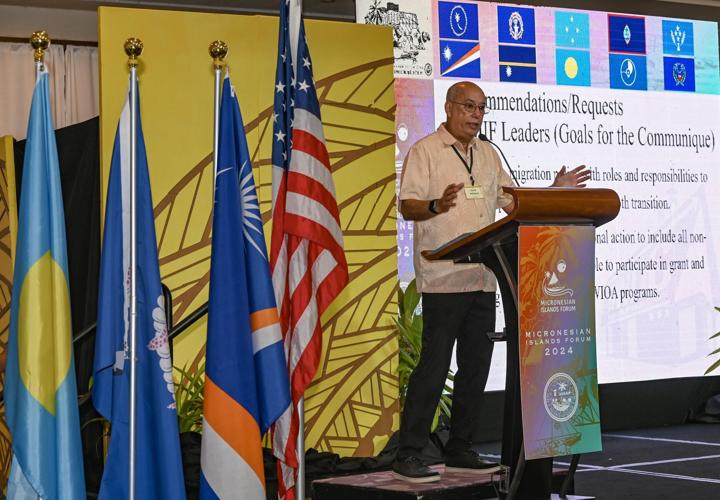Stories of residents leaving their home island and labour shortages are common across Micronesia, island leaders said during a summit in Guam this week.
Regional leaders put their heads together on how to tackle the issue during the 26th Micronesian Islands Forum, which took place on Monday and Tuesday.
Loss of workers and residents to better opportunities in the U.S were a common thread.
The Compacts of Free Association provided a large amount of funding, said Palauan Vice President Uduch Senior, but COFA was also a curse, as Palau is now shrinking as residents leave for the states.
“Our numbers keep going down. We’re now less than 20,000,” Senior shared with other heads of state.
With the minimum wage in Palau at just $3.50 an hour, young people are fleeing to the mainland U.S, said Senior.
“It is easier for a 30-year-old Palauan with a family to buy a house in the states than for them to own a home in Palau,” she said.
Palau is now at a point where foreign labour had to be brought in to work in the tourism sector, and the government is trying to get kids certified as divers while in high school so that they can stay instead and work as tour guides, Senior said.
Labour shortages on Guam have recently spurred some members of the local tourism industry to look into the possibility of importing foreign labourers to work in the tourism sector.
All across Micronesia, tourism numbers were at 900,000 in 2023, compared to over 2.2 million in pre-COVID-19 pandemic 2019, according to numbers shared by Pacific Asia Travel Association Micronesia Chapter Vice Chair Mark Mendiola.
As workers leave to get better paying jobs elsewhere, good paying jobs in Micronesia end up getting filled by imported labour, noted Republic of the Marshall Islands Minister of Finance David Paul.
Paul said there was a mass migration of Marshallese people going to the U.S. to work at the Tyson Chicken Factory in Arkansas, where they could get a wage of US$20 an hour.
“But we ended up paying these foreign labourers, high salaries … just because of the skill sets that they bring,” Paul said.
Paul said he believed too much focus was put on going to college in the region, when the biggest, quickest return on investment was in putting people through vocational training to become mechanics, electricians, and carpenters.














